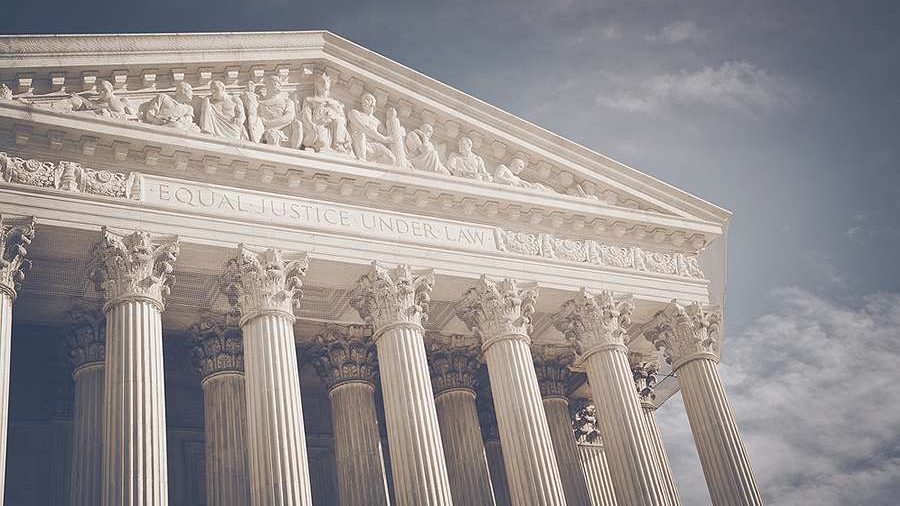More than 75 amicus briefs have been filed at the Supreme Court supporting Mississippi’s ban on most elective abortions after 15 weeks, the state’s attorney general said last week. Many of the briefs were filed by Catholic or pro-life organizations.
In the case of Dobbs v. Jackson Women’s Health Organization - a critical abortion case that will be argued before the court this fall - Mississippi Attorney General Lynn Fitch’s office said hundreds of experts filed 76 amicus briefs, or legal documents requesting a certain outcome in a case.
The National Catholic Bioethics Center was one of the amici curiae in the case. Its president, Joseph Meaney, told CNA on Tuesday that the case presents “a remarkable opportunity” for the court to substantially alter or overturn its previous rulings that claimed a right to abortion.
Expressing optimism that the court will reevaluate or possibly overturn its Roe v. Wade decision as a result of the Dobbs case, Meaney said “there’s a real light at the end of the tunnel here.”
“There’s a growing cultural momentum that people have had enough of abortion-on-demand,” Meaney said, adding the Supreme Court overstepped its authority in the Roe case by imposing legal abortion on the nation.
“At the NCBC we always cherish the opportunity to talk about the dignity of the human person,” he said, adding, “this is another moment where they [the justices] can do the right thing.”
Heather Hacker, the former assistant solicitor general of Texas, filed an amicus brief on behalf of law professors Mary Ann Glendon and Carter Snead, as well as one on behalf of The Catholic Association. Hacker told CNA that the high court’s abortion jurisprudence “is not grounded in the text, history, or tradition of the Constitution.”
Hacker said the brief for the law professors argued that Roe “was a leap when it was created, it’s been criticized by scholars since then ranging the political spectrum.”
“Every time the court since Roe has tried to fix its abortion jurisprudence, it’s essentially made it worse,” Hacker said.
On behalf of The Catholic Association, Hacker argued that at the time of the Roe decision in 1973, “our understanding of fetal development was very limited.”
Modern ultrasound technology means “you can really see the baby’s humanity, and that was something really not contemplated by Roe,” Hacker said.
Dr. Grazie Christie, a policy advisor for The Catholic Association, told CNA there has been “tremendous change and advancement in the science since Roe versus Wade.”
“There is really no mystery to the fact that at 15 weeks the fetus is very much alive and very human,” Christie said, adding that the understanding of fetal pain has changed as well.
“It used to be thought that a baby couldn’t feel pain until the third trimester,” Christie said. “Now, we know it could be as early as 12 weeks.”
Another brief was filed on behalf of pro-life feminists, including the group New Wave Feminists. The group’s founder, Destiny Herndon-De La Rosa, said in a statement to CNA, “For far too long feminists have been fighting for a piece of the pie while settling for the crumbs.”
“We’re here to demand a future where women are able to participate in society without having to sacrifice their children on the altar of ‘equality,’” Herndon-De La Rosa said. “We are able to do something men cannot – bring new life into this world. Patriarchy gained its power by using violence against the vulnerable, and we refuse to replicate that model as it has no place in a truly equitable future for every member of the human family.”
In her statement last week, Attorney General Fitch said, “As evident by the compelling briefs filed here by legal experts, medical providers, and lawmakers from both sides of the aisle, there are countless reasons why the Court should return the abortion discussion to the legislative branch.”
“Science and society have changed dramatically in the 50 years since Roe, and it will only continue to march forward,” Fitch said. “It is time to release states from these outdated standards and allow lawmakers who are accountable to the people to decide how best to promote dignity and support for mothers and children.”

